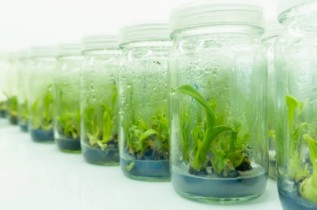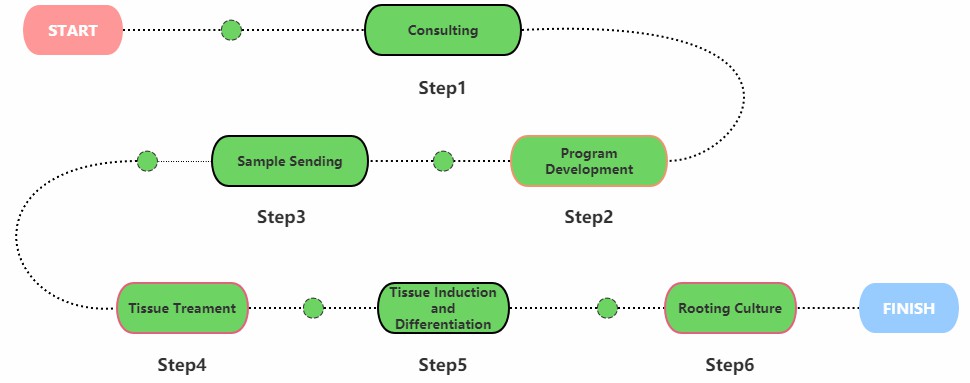Forests provide humans with various forest products needed to sustain survival, such as fuel, wood, timber, paper, and fodder, and play a role in the ecological environment by balancing carbon dioxide and regulating rainwater. However, with the excessive logging and fires, the area of forests has been greatly reduced, and it is urgent to protect forests.
To protect forests, suitable genotypes can be adopted for afforestation and rapid propagation and planting of forest trees with the help of science and technology. Asexual propagation methods such as cuttings, grafting, and crimping are the most common measures. Among these methods, plant tissue culture is efficient and convenient and is widely used in forestry, basic botany, genetics research, and agricultural breeding and variety preservation, among other research fields.
Lifeasible, a specialized plant biotechnology company with state-of-the-art plant tissue culture technology, offers custom tissue culture solutions and optimized protocols for application in forestry development to clients worldwide.

Plant tissue culture is the technique of isolating tissues, organs or cells, protoplasts, etc. from plant bodies that meet the needs and culturing them under appropriate conditions so that they can grow, develop, differentiate and proliferate. Plant tissue culture can produce many plants from a small number of matrices and is a well-established technique. Although trees respond more strongly to tissue culture techniques during their juvenile years, it is usually not until the adult stage that trees can be evaluated for desirable traits. Therefore, methods such as spraying growth regulators, induced division, and root suckering are often used to improve the vigor of adult trees.
The contents of our tissue culture in forestry are mainly as follows.
Among them, micropropagation technology is a biotechnological tool for rapid cloning reproduction of selected plant species, which has obvious advantages in tissue culture in forestry. The main steps usually include the selection of the mother plant for yield and quality, dissection of the growing tissue, surface sterilization of the tissue, inoculation of the tissue on a suitable medium, sub-culturing in a fresh medium to propagate the resulting shoots, shoots and then rooting, and finally transplant.
Apical meristem culture is to select the apical meristem without virus infection to cultivate trees, so this technique is often used to cultivate virus-free plants. Protoplasts are naked plant cells, and somatic hybridization is a technique in which somatic cells or gametocytes of different plants are fused, and plants are grown from the fused protoplasts.
Our tissue culture services in forestry cover an extensive range of species, and information on some of the species we target is shown below:
Pines (Pinus spp.)
Hemlock (Tsuga spp.)
Redwood (Sequoia spp.)
Arbor vitae (Thuja spp.)
Juniper (Juniperus spp.)
Red spruce (Picea rubens)
White spruce (Picea glauca)
Bald cypress (Taxodium spp.)
Oak (Quercus palustris)
Chinese Photinia (Photinia serrulata)
Eucalyptus (Eucalyptus robusta)
Poplar (Populus tremula)
Cercis gigantea
Serviceberry
Pinus ponderosa
Eucalyptus globulus
Elm (Ulmus pumila)
White-barked birches (Betula spp.)
Ficus (Ficus elastica)
Red maple tree (Atropurpureum)
Pagoda tree (Sophora japonica)
Cotinus coggygria
Shagbark Hickory
Acer saccharum

With years of experience in tissue culture and professional scientists, Lifeasible is committed to providing one-stop forestry tissue culture services to clients worldwide. We will work closely with our clients to ensure that each project receives the attention and support it needs. Please feel free to contact us with questions, inquiries, or collaborations.
Lifeasible has established a one-stop service platform for plants. In addition to obtaining customized solutions for plant genetic engineering, customers can also conduct follow-up analysis and research on plants through our analysis platform. The analytical services we provide include but are not limited to the following:
July 13, 2024